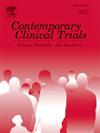尼日利亚临床试验的挑战和前景--世界卫生组织 COVID-19 团结加试验的经验教训。
IF 2
3区 医学
Q3 MEDICINE, RESEARCH & EXPERIMENTAL
引用次数: 0
摘要
在大流行期间开展随机临床试验(RCT)对于及时获得安全有效的治疗证据至关重要,但也存在诸多障碍。在 COVID-19 大流行期间,世界卫生组织(WHO)赞助了多国 RCT,在临床研究能力各不相同的国家对 COVID-19 住院患者中的再利用药物进行调查。在尼日利亚,有几项挑战阻碍了我们的进展,包括基础设施不足、最初的研究人员认证和专业知识不足,以及由于官僚主义障碍而导致的监管审批延误。尽管存在这些挑战,但世界卫生组织赞助的 "团结加试验"(SPT)为我们提供了宝贵的机会,使我们能够提高研究能力,通过电子随机化简化参与者注册程序,并加强医护人员的感染预防和控制措施。此外,该试验还使我们能够升级多个地点的基础设施,通过更多的检测和数据收集来改进病例检测。我们学到的一个重要经验是,在疫情爆发期间,必须加快试验的启动,以充分利用有限的数据收集时间。为了优化大流行期间的临床试验,我们主张加强社区参与、跨部门合作、加强研究能力、灵活的监管框架以及建立适应性临床试验单位。通过应对这些挑战和利用各种机遇,我们可以大大提高公共卫生突发事件期间 RCT 的效率和影响。本文章由计算机程序翻译,如有差异,请以英文原文为准。
Challenges and prospects of clinical trials in Nigeria - Lessons from the WHO COVID-19 solidarity plus trial
Conducting randomized clinical trials (RCTs) during a pandemic is essential for obtaining timely evidence on safe and effective treatments, but it presents numerous obstacles. During the COVID-19 pandemic, the World Health Organization (WHO) sponsored multinational RCTs investigating repurposed drugs among hospitalized COVID-19 patients across countries with varying clinical research capacities. In Nigeria, several challenges hindered our progress, including inadequate infrastructure, initial insufficient investigator certification and expertise, and delays in securing regulatory approvals due to bureaucratic hurdles. Despite these challenges, the WHO-sponsored Solidarity Plus Trial (SPT) offered valuable opportunities to enhance research capacity, streamline participant enrolment through electronic randomization, and bolster infection prevention and control measures for healthcare workers. Moreover, the trial enabled us to upgrade infrastructure at multiple sites, facilitating improved case detection through more testing and data collection. A crucial lesson learned was the importance of expediting trial initiation to capitalize on the limited window for data collection during an outbreak. To optimize RCTs during pandemics, we advocate for enhanced community engagement, collaborative efforts across sectors, strengthened research capacity, flexible regulatory frameworks, and the establishment of adaptive clinical trial units. By addressing these challenges and leveraging opportunities, we can significantly enhance the efficiency and impact of RCTs during public health emergencies.
求助全文
通过发布文献求助,成功后即可免费获取论文全文。
去求助
来源期刊
CiteScore
3.70
自引率
4.50%
发文量
281
审稿时长
44 days
期刊介绍:
Contemporary Clinical Trials is an international peer reviewed journal that publishes manuscripts pertaining to all aspects of clinical trials, including, but not limited to, design, conduct, analysis, regulation and ethics. Manuscripts submitted should appeal to a readership drawn from disciplines including medicine, biostatistics, epidemiology, computer science, management science, behavioural science, pharmaceutical science, and bioethics. Full-length papers and short communications not exceeding 1,500 words, as well as systemic reviews of clinical trials and methodologies will be published. Perspectives/commentaries on current issues and the impact of clinical trials on the practice of medicine and health policy are also welcome.

 求助内容:
求助内容: 应助结果提醒方式:
应助结果提醒方式:


